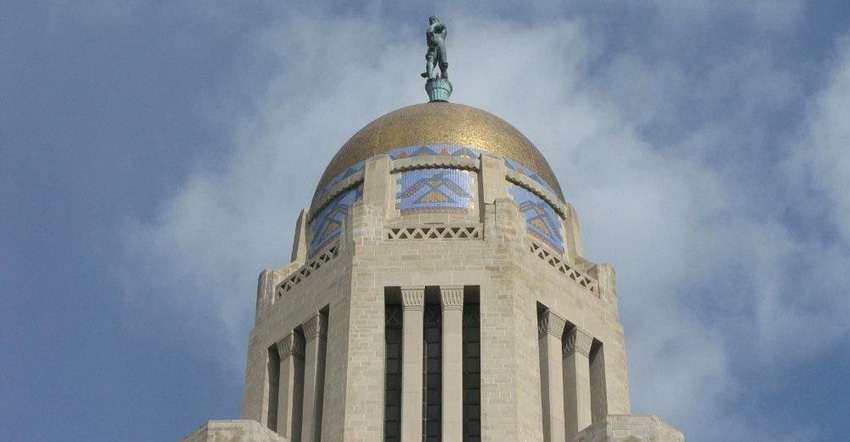February 12, 2018

It was the middle of the Great Depression and the drought of the "dirty 30s," when Nebraska's House of Representatives and State Senate met for their last sessions at the Capitol in Lincoln. This was the last time Nebraska legislators would meet under a bicameral system, with both a senate and house of representatives. Thanks to an amendment that passed a year earlier, the state would then move to a single-house, nonpartisan legislative body.
Legislative membership, that is the number of representatives in state government, went down from 133 in the bicameral years to just 43 in the new Unicameral — a 70% reduction. Cost during these hard times was one of the reasons for the move. The last bicameral session in 1935 ran 110 days, passed 192 bills and cost the taxpayers $202,593. In comparison, the first unicameral session ran 98 days, passed 214 bills and cost about half as much.
Although Nebraska was the only state to be successful at implementing a unicameral state government, as many as 21 other states looked at the system that same year, most likely for the same reasons. Yet, Nebraska remains the only state in the country that actually transitioned to a Unicameral.
Poring through the cover story from the March 16, 1935, issue of Nebraska Farmer written by Editor Thomas A. Leadley on the issues facing the state Legislature that spring, it is amazing how many of the topics taken up by legislators in that last bicameral session in the middle of those hard times would have fit directly into our discussions in the state Legislature today.
With all of the debate about taxation, particularly of agriculture through property taxes from our modern Unicameral, one item struck me in those tattered old pages. Leadley wrote, "No one should shirk the burden of taxation. This burden should be fair and equitably distributed in accordance with ability to pay. The best way to reduce taxes is to spend less money."
He further noted, "The tax burden on real property is too great and should be relieved. However, the danger in new methods of taxation is that the money obtained will be used for additional expenditures or as an argument against reduced appropriations."
Along with a photo of the state's House of Representatives, there is also a photo of W.H. O'Gara from Cedar County, who was then speaker of the House of Representatives in Nebraska; and Cloyd L. Stewart from Clay County, who served as president pro tem of the state Senate. Robert Leroy Cochran was then serving as the state's 24th governor.
Buried deep into that same issue of the magazine was another telling legislative note, reflective of the hard times farmers were experiencing. The Legislature had passed H.R. 1, a mortgage moratorium measure to extend the moratorium on foreclosures until 1937. Other legislative reports in the magazine deal with an increase in the state gas tax, concern by farmers about open and competitive markets for livestock, and funding for improvements of the Nebraska State Fair.
Finally, the article deals with municipalities being permitted to acquire and operate public electric light and power plants under the same regulations as private utilities. Although this is a specific issue, Leadley highlights his concerns, which could have been written on much broader based taxation issues for agriculture readers today.
If taxation on the issue wasn't required to be equitable, he said "it will fall upon farmers to pay the larger part of the tax revenue, which municipal plants fail to pay, in as much as farm property contributes about 65% of the total general property tax revenue in Nebraska." So, the concerns farmers had back in 1935 continue on today.
Leadley finally opined, "The time is opportune to separate the 'wheat from the chaff' in the Nebraska legislative hopper. Of the 1,038 bills introduced in the Nebraska Senate and House, a small percent will be finally enacted into law and a lesser number are meritorious or needed. Thus, we frequently hear expressed the opinion that a good legislature is one that enacts little new legislation to further complicate an already bursting statute file."
You May Also Like




